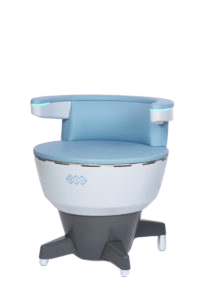Gynecology is the practice of medicine that focuses on female organs. Whether it be for a routine checkup, or the emergence of new, problematic symptoms, our team can offer the assistance necessary for care. At our Gynecology Center, both Dr. Tamara Guichard and Dr. Molly McBride are happy to help any patients in need.
Gynecology
Gynecology Q&A
When Should Women See A Gynecologist?
For women aged 21 and above, it is recommended that you schedule annual appointments with gynecologists. During these appointments, Dr. Guichard and Dr. McBride can screen for any issues and check your overall health. However, you shouldn’t think you only need to see a gynecologist once a year for routine checkups. Our team will also help with:
- STD/STI testing and treatments.
- Fertility issues.
- Hormone replacement therapy.
- Incontinence.
- Menstrual cycles.
- Yeast infections.
- Additional vaginal and reproductive issues.
What To Expect During Your Appointment?
Our team understands that no matter the reason for it, doctor’s appointments can be a bit nerve-wracking. To ease any anxiety, our team would like to expand on what you can expect should you be visiting our gynecology center. During a routine exam, our doctors will check your vulva, vaginal cervix, and other reproductive organs for issues. Doing so helps to screen for:
- Cancer.
- STDs.
- STIs.
- Other diseases.
In addition to checking your reproductive organs, our doctors will also check your breasts for lumps, dumplings, rashes, and redness.
Expect to be given a gown to change into at the time of your arrival to help the appointment go smoother. If possible, please refrain from sexual intercourse, douching, or using spermicidal products the day before the exam, as it can interfere with our tests.
SectionWhat Is Stress Urinary Incontinence?
Urinary incontinence is the unintentional loss of urine. While there are many different causes of this, stress urinary incontinence takes place in conjunction with physical activity. Examples of what may cause unwanted urinary leakage include:
- Coughing.
- Sneezing.
- Laughing.
- Standing up.
- Exercising.
- During intercourse.
- Exercising.
Stress urinary incontinence is often caused by weakness in the muscles of your pelvic floor. Strong pelvic muscles are needed to support the urethra and keep the passageway for urine closed until it is time to relieve yourself. However, when these muscles weaken, the urethra loses the support needed to stop urine, leading to incontinence. Events that can cause this to take place include:
- Childbirth.
- Hormonal deficiency.
- Obesity.
- Undergoing surgery in the pelvic area.
- Chronic heavy lifting.
How Can Stress Urinary Incontinence Be Treated?
When it comes to treating stress urinary incontinence, there are several options that we offer in our offices. Patients should feel comfortable working with our team, as they always have your best interest in mind. Aside from BTL Emsella, another treatment method offered by our team is Macroplastique. It is an injectable soft-tissue urethra bulking agent that can be used to help repair weak pelvic muscles. It is injected into the tissues surrounding the urethra and can help stop leaking from occurring. Most patients fully recover from this procedure within a few days.





 BTL Emsella Treatment
BTL Emsella Treatment